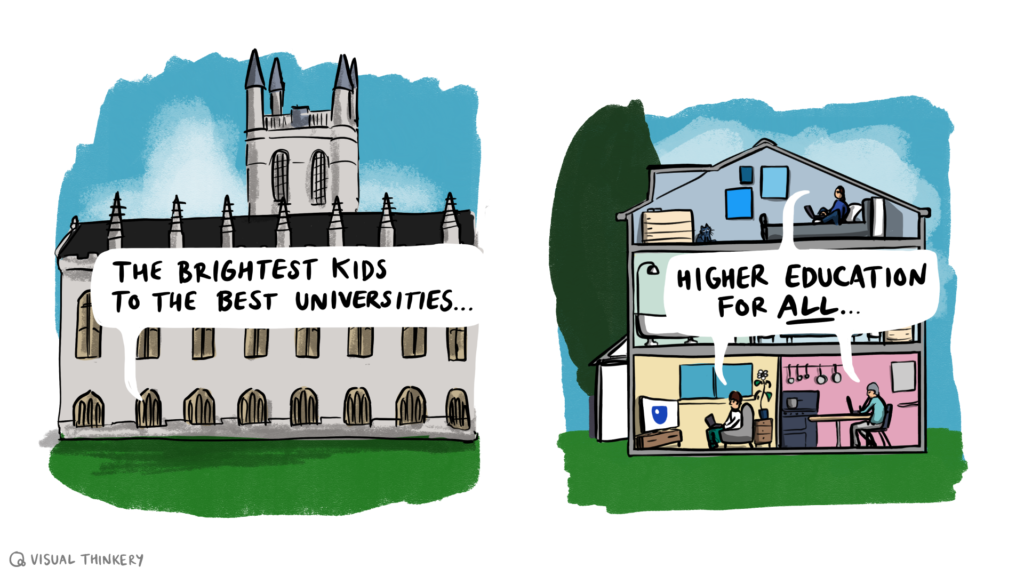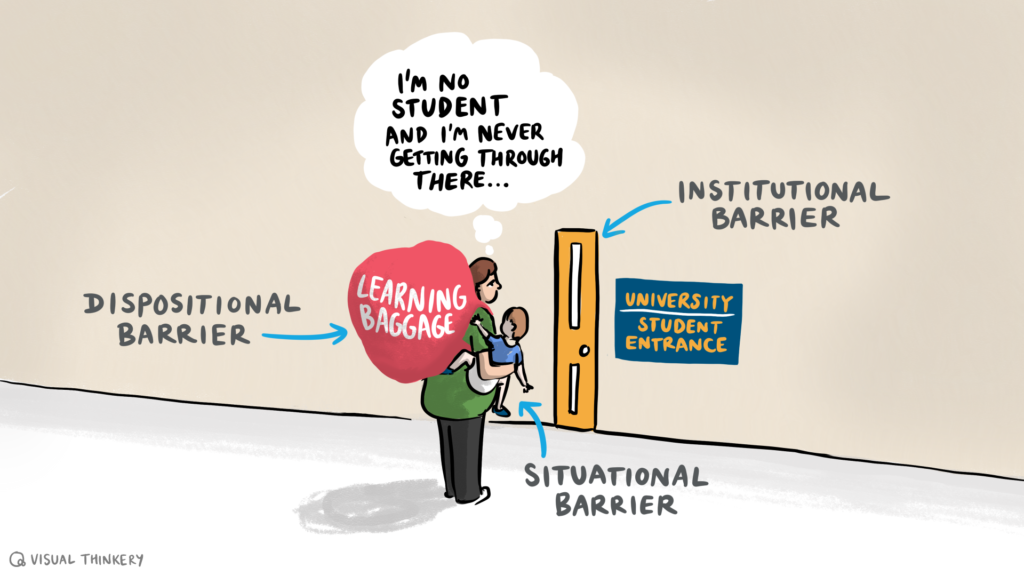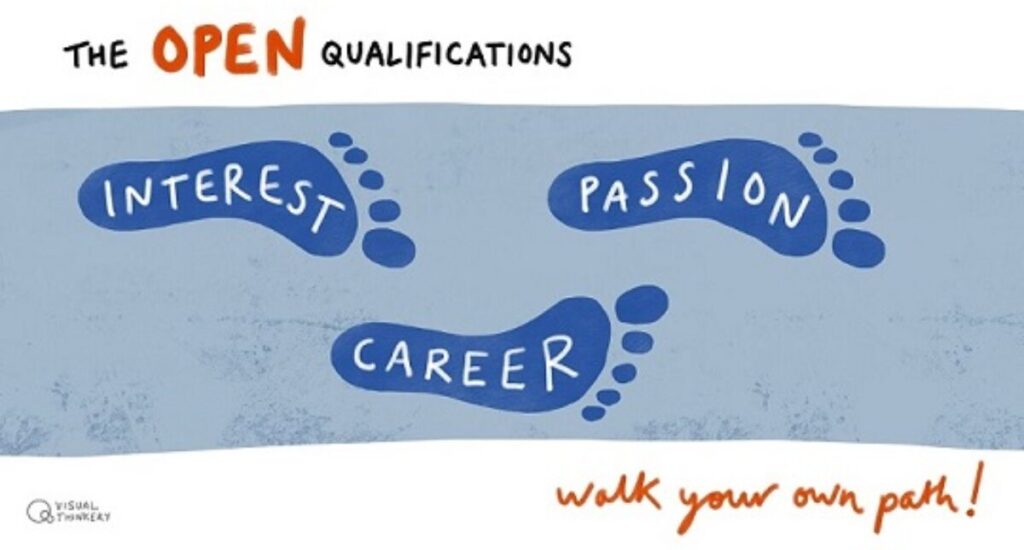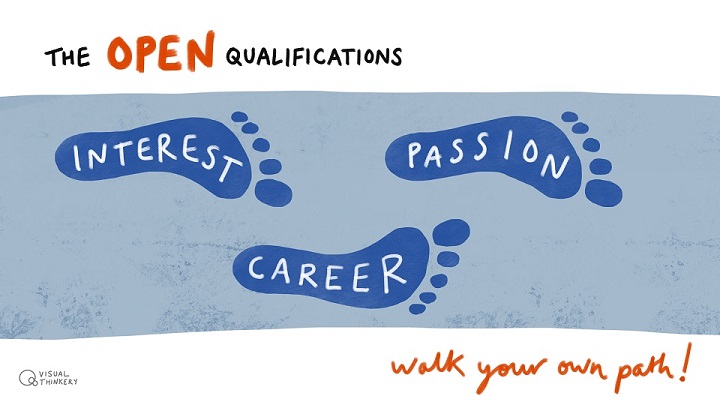 On his retirement from the Open University, Emeritus Professor John Butcher reflects on the importance of openness.
On his retirement from the Open University, Emeritus Professor John Butcher reflects on the importance of openness.
Recently, on reaching the age of 67 in October 2023, I retired from the Open University as Professor of Inclusive Teaching in Higher Education. My final responsibility was to chair the Academic Committee which had governance oversight of the Open qualification and to which the Open Board of Studies reported. At the end of the meeting, at the point at which thanks were being generously expressed by colleagues, it was suggested I might formulate some personal reflections to be disseminated through the ‘Open blog’. I was happy to agree.
I have been considering why an Open University is such a good idea. If the OU hadn’t existed successfully for 50+ years, I believe it would be necessary, in 2023, to invent it. And I have thought about why the idea of offering students (and not just distance learning adult students) an open degree at undergraduate and postgraduate levels is so vital. The crucial factor in openness is flexibility, to enable students to access the HE best suited to their aspirations and circumstances. Learners keen to engage with HE should not have to ‘bend’ to meet taken-for-granted institutional systems.

I began my career in the 1980s as a teacher in post-compulsory and Further Education, transitioned to training teachers, which led to a role in the academic development of lecturers before ending my career as an academic leader responsible for Access and Open programmes. In this spirit, I state categorically that openness matters. My visceral reaction against much of conventional higher education is a strong one and based on 40 years of trying, as a committed educator, to support opportunities for students traditionally excluded from university study. ‘Openness to people’ is a key OU mission statement, and one that other UK universities, even those aspiring to widen participation, struggle to attain.
So why does openness matter? I think my response is best introduced by a simple linguistic query – what is the antonym (opposite) of the adjective ‘open’. A quick google search reveals ‘shut’ and ‘closed’ as the most common adjectives. So, as a little thought experiment: do those adjectives suggest the alternative to the idea of an open university is a closed university, or indeed a shut one? OK, a shut university is perhaps pushing the analogy too far, but a closed institution can suggest closed to some learners. It also encompasses a closed or bounded conceptualisation of what (and how) a university might teach…
So openness can perhaps be reframed in a more radical direction (returning to the OU’s origins in the 1970s), as a university and a qualification framework which deliberately widens participation to all, rather than preventing learners from accessing HE and erecting barriers and obstacles to those aspiring to study.
Adult learners, especially those from disadvantaged backgrounds returning to education, are not a cohort most conventional universities target or welcome. Opportunities are closed off on the grounds of selection (universities are in a zero-gain race to attract the best qualified 18-year-olds, so select based on A level grades). Conventional universities are inevitably inflexible, with fixed term dates, fixed timetables, high tuition fees (in England) and with inadequate maintenance grants or poorly targeted study support. In addition, conventional universities seem unable to innovate away from very narrow pathways to qualifications – a really limiting factor when potential students are effectively required to specialise from age 13/14 when GCSE subject choices have to be made.
So, openness matters for those learners who do not fit stereotyped assumptions about who should go to university. This of course changes over time. When I commenced my studies in the 1970s, university students were predominantly white and middle class and largely studied high status academic subjects associated with a specialised Grammar School curriculum. They were much more likely to be male. I achieved poorly at A level but was ‘saved’ by a Polytechnic offering the chance to study a joint degree with two subsidiaries. The institution was still predominantly white, but the students were more likely to be from the local region and more likely to be working class (there were full local authority grants in those days). Separately, the OU was already doing the heavy lifting for the sector in opening access to HE for adult learners, most of whom worked.
After the HE sector expanded in the 1990s, governments and policymakers sought to encourage universities to widen participation (in theory, opening up HE). Millions of pounds have been spent, initially on aspiration-raising activities in schools – which failed to address the selection barriers inhibiting access to conventional universities. More recently, achievement-raising activities have sought to enhance GCSE and A level results for students traditionally excluded. But conventional universities themselves have changed little and remain closed to too many learners with the potential to succeed.

Openness matters because without it, poorer students, disabled students, older students, students from certain ethnic backgrounds and students with low prior qualifications will continue to be ‘othered’ and excluded from HE. Open access at the OU gives more learners a chance, and the Open qualification gives opportunities for students to devise their own, personalised qualification. Openness is precious.
